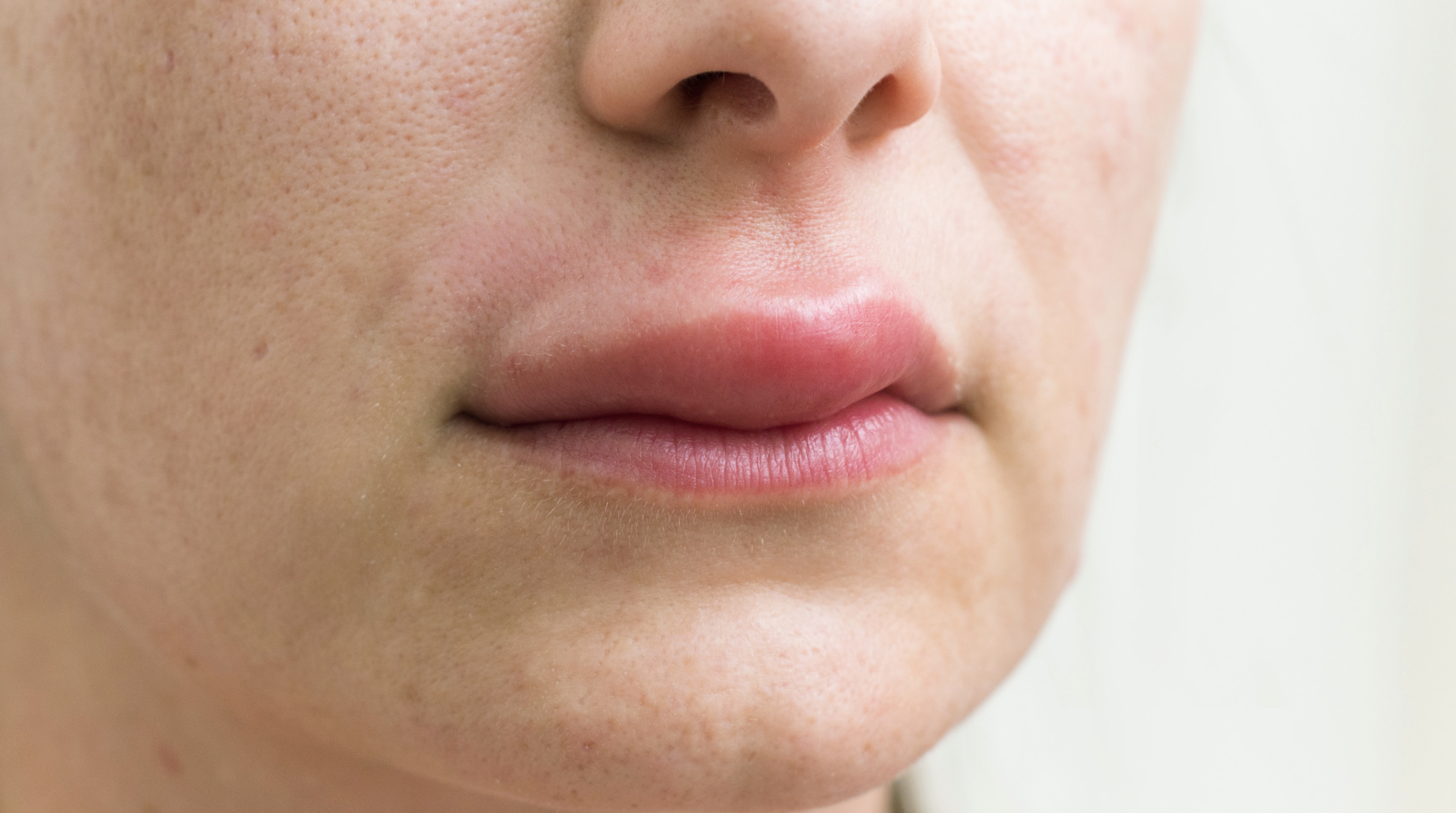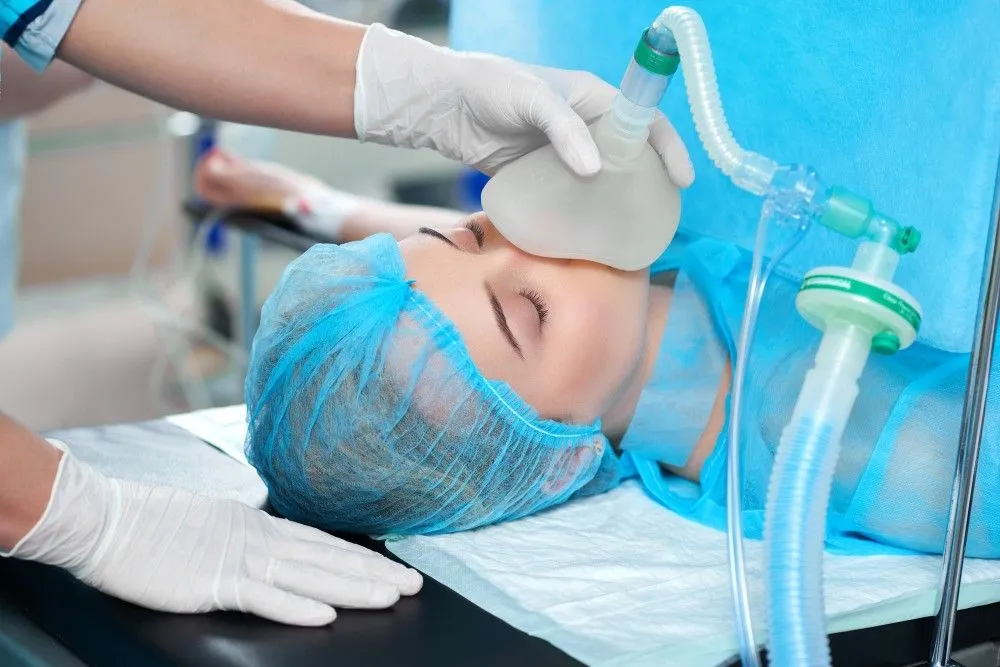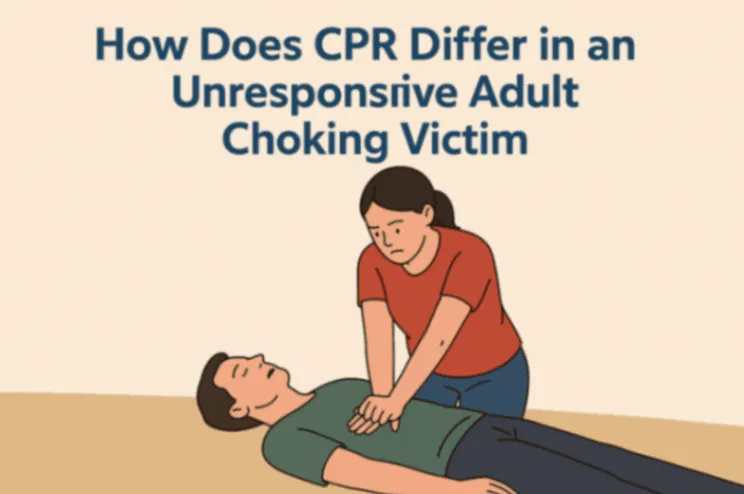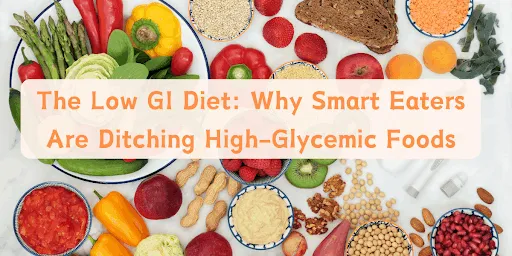Do you ever feel short of breath or struggle to catch your breath after a meal? While mild heaviness can be normal, frequent shortness of breath after eating may signal an underlying issue. From overeating and acid reflux to more serious conditions, understanding the possible causes is the first step to relief.
In this blog, we’ll explore why it happens and practical ways to manage the discomfort.
What Causes Shortness of Breath After Eating?
Here are some causes of shortness of breath (medically called dyspnea) or difficulty breathing after meals. Some causes are harmless, while others might indicate more severe health concerns.
1. Overeating
-
Eating a lot of food can put strain on the diaphragm (which helps with breathing), temporarily making it tough to breathe deeply.
-
In addition, excessive consumption of food can cause bloating, which can also interfere with the diaphragm's contraction, causing shortness of breath.
2. Food Allergies or Intolerances
-
A 2023 study shows that food allergies can lead to mild symptoms to dangerous anaphylaxis (allergic reaction). This can cause difficulty breathing within minutes to hours of eating by triggering inflammation in the airways or throat.
-
Common food allergens are nuts, dairy, gluten, shellfish, peanuts, milk, wheat, and sesame.
-
Call 911 immediately if you experience the symptoms of anaphylaxis, like nausea, vomiting, abdominal pain, swelling in the face and throat, hives, dizziness, or rapid heartbeat.
3. Gastroesophageal Reflux Disease (GERD)
-
GERD (where the stomach acid flows towards the esophagus) can irritate and inflame the lungs and airways after eating, which can cause a feeling of breathlessness.
-
Also, the stomach acid can trigger nerves in the airways and esophagus, leading to bronchoconstriction, a condition where the muscles of the airways tighten. Thus, it affects breathing.
Dig Deeper: Can Acid Reflux Cause Shortness of Breath? Here's the Fact
4. Hiatal Hernia
-
Research shows that a large hiatal hernia (when some stomach area pushes up into the opening of the chest cavity through the diaphragm) compresses the heart, lungs, or diaphragm. This restriction on their movement can cause shortness of breath.
-
It also often triggers acid reflux, irritating the airways and causing shortness of breath or chest tightness after eating.
5. Chronic Obstructive Pulmonary Disease (COPD)
-
Consuming large meals can move up on the diaphragm, which leaves less space for the expansion of the lungs. This makes it challenging for individuals with COPD to breathe, who are already struggling with difficulty breathing.
-
Moreover, digestion of the food uses energy, which increases the need for more oxygen; this, in turn, worsens the shortness of breath in COPD patients.
6. Arrhythmia (Irregular Heartbeat)
-
Irregular heartbeat causes the heart to pump blood less efficiently, which restricts the flow of the right amount of oxygen-rich blood to all body parts. This leads to difficulty breathing after eating, where the body requires more oxygen.
-
Moreover, eating can stimulate changes in heart rate and blood pressure, which can put more pressure on the heart. Thus, worsening the arrhythmias and causing breathlessness.
7. Asthma
-
Certain foods or additives in them can trigger the symptoms of asthma in some individuals, which causes inflammation of the airways. This leads to shortness of breath.
-
Additionally, eating can cause acid reflux, which can cause airway irritation and worsen the asthma symptoms, including breathlessness and coughing.
8. Pulmonary Aspiration (Accidentally Inhaling food particles)
-
Accidental inhalation of food particles can partially block the airways, which makes it tough to breathe well after eating.
-
Also, the food particles in the lungs can cause infection or inflammation, which leads to shortness of breath and coughing.
9. Heartburn
-
Some spicy and high-fat foods can cause heartburn, which leads to the flow of stomach acid back to the esophagus, causing inflammation and irritation in the airways and throat and making it challenging to breathe.
-
Also, bloating and acid reflux from heartburn cause swelling in the stomach, which strains the diaphragm, leading to shortness of breath, particularly after fatty or large meals.
10. Obesity or Being Overweight
-
Excess weight or fat around the abdomen can put huge pressure on the lungs and diaphragm, making it hard to breathe after a meal.
-
Moreover, increased fat can produce hormones that change the breathing patterns, and also, excess weight can impact the brain's control of breathing.
11. Anxiety and Panic Disorders
-
Sometimes, shortness of breath can occur due to physical effects associated with eating, like a racing heart, fullness, and indigestion.
-
These effects are interpreted as a threat by the anxious brain, which further intensifies the response.
Tips to Relieve Shortness of Breath After Eating
If you experience shortness of breath or trouble breathing, consider these tips:
-
Eat slowly & chew thoroughly: Take enough time to chew your food and eat in smaller bites to avoid pressure on the diaphragm.
-
Sit upright: Keep your posture straight when eating your food and also afterwards for a while. This improves digestion and allows the lungs to expand properly.
-
Take a walk: A short walk after eating your food instead of lying down can help with good digestion and prevent the buildup of gas.
-
Avoid carbonated drinks: Do not drink soda or sparkling beverages, as they cause buildup of excess gas in the stomach, which contributes to bloating and pressure on the diaphragm.
-
Stay hydrated: Drink sufficient amounts of water to ease digestion.
-
Practice breathing exercises: Perform pursed-lip breathing or deep breathing to prevent tightness of chest muscles, which can make breathing difficult.
What Does Shortness of Breath Feel Like?
Depending on the cause, shortness of breath can feel like:
-
Unable to take a complete breath if you try to inhale.
-
The breath count per minute increases.
-
Chest tightness or suffocation.
-
Swelling in the lips and airways.
-
Wheezing and whispering with efforts to take breath.
If you feel this, consult a doctor for proper treatment.
When Is Shortness of Breath a Matter of Concern?
Occasional breathing difficulty after meals is not alarming, but persistent breathlessness can be problematic, indicating the risk of severe medical issues that need professional help. It becomes a cause of concern and needs medical attention if:
-
You feel breathless after each meal.
-
Your breathing becomes a struggle.
-
Your symptoms become worse.
-
You experience other accompanying symptoms, like chest pain, nausea, or dizziness.
-
You still have difficulty breathing even after a rest of 30 minutes.
-
You feel lightheaded or faint, or vomiting.
-
You experience cyanosis, a blue discoloration of the lips or skin, indicating a lack of oxygen.
Timely medical treatment can prevent complications. So, see the healthcare provider immediately.
When to See a Doctor?
See a doctor if you persistently experience shortness of breath after eating. The American Lung Association recommends seeking medical help if shortness of breath lasts for more than 30 minutes or occurs while resting, and alongside the following:
-
pain or strain in the chest
-
challenges in breathing when lying down straight
-
dizziness or lightheadedness
-
wheezing (high-pitched whistling sound)
-
fever, cough, and chills
-
blue discoloration of the lips, skin, or fingertips
-
swelling in the ankles or feet
The healthcare provider will run some tests to rule out the exact cause and determine the right treatment.
Diagnosis of Dyspnea
The healthcare providers examine you thoroughly and listen to the activity of the lungs. Also, they perform some tests to find the exact cause:
-
Spirometry: This lung function test helps measure how well the lungs can blow air in and out and how fast. It helps diagnose COPD and asthma.
-
Allergy testing: It helps identify specific food triggers that are responsible for causing an allergic reaction.
-
Pulse oximetry: It involves clipping a device to an earlobe or fingers to check how much oxygen is present in the blood.
-
Blood tests: They are used to check the fluid and blood clots in the lungs and detect anaemia or any type of infection.
-
Chest X-ray: It helps find out pneumonia, blood clots in the lungs, or other lung-related diseases.
-
Esophageal pH monitoring: It measures the acidity level in the esophagus and helps detect gastroesophageal reflux disease (GERD).
-
CT scan: It provides detailed cross-sectional pictures of the chest and lungs to rule out the underlying cause, like infections, blood clots, emphysema, inflammation, fluid buildup, or structural issues.
-
Upper endoscopy: It detects underlying causes, like GERD, hiatal hernia, tumor, upper airway obstruction, or perforation of the esophagus.
-
Manometry: It measures the rhythmic contractions of muscles in the esophagus while swallowing, which can detect motility disorders, such as esophageal spasms.
- Electrocardiogram: This assists in measuring the heart's electrical signals to check the chances of a heart attack. Also, it helps find the rate of heartbeat.
Best Treatment Options for Shortness of Breath Post-Eating
By diagnosing the exact cause with the help of diagnostic tests, like allergy testing, chest X-ray, CT scan, upper endoscopy, ECG, and pulmonary function tests, the doctor provides the right customized treatment plan:
1. Medications
-
Proton pump inhibitors (e.g., Omeprazole) or antacids (e.g., Mylanta) to treat acid reflux.
-
Antihistamines, like diphenhydramine and loratadine, to manage food allergies.
-
Corticosteroids or bronchodilators for COPD or asthma.
2. Dietary and Lifestyle Changes
-
Eat smaller and more frequent meals
-
Avoid triggering foods, such as spicy, fatty, and acidic foods
-
Avoid lying down immediately after meals
-
Reduce alcohol and caffeine intake
-
Manage weight if obese or overweight
-
Practice exercises regularly
-
Engage in stress-reducing techniques, like meditation and yoga
3. Surgery
-
In severe cases, where a hiatal hernia or gastroesophageal reflux disease (GERD) is causing shortness of breath, the doctors recommend repair of a hiatal hernia or fundoplication for GERD.
-
These surgical procedures are considered when medications and lifestyle changes show no improvement.
How to Prevent Breathlessness After Eating?
Follow these tips to avoid shortness of breath after having a meal:
-
Eat smaller meals: Just have 5 to 6 smaller meals throughout the day to reduce stress on the diaphragm.
-
Eat slowly and thoroughly: Chew your food slowly and thoroughly to clear your respiratory system and ease digestion.
-
Avoid drinking while eating: Do not drink water with your food to avoid discomfort and indigestion.
-
Limit trigger foods: Examples include acidic, fatty, and spicy foods, as they cause or worsen breathlessness by triggering health conditions, like asthma and food allergies.
-
Avoid lying right after a meal: Walk, sit, or stay upright for about 30 minutes after you eat, as lying down can worsen acid reflux.
-
Do not talk while eating: Aids in lowering the risk of inhalation of food particles in the airways.
-
Maintain a healthy body weight: Helps avoid pressure on the diaphragm and the lungs.
-
Manage stress: As anxiety and stress can worsen symptoms, practice stress-reducing techniques, such as yoga or meditation, to relieve stress.
-
Quit smoking: If you are an occasional smoker, quit smoking to improve your respiratory health. If you are unable, seek medical support.
Is Difficulty Breathing a Life-Threatening Issue?
No, it is typically not a fatal condition. But, depending on the cause, it may need immediate medical treatment. For instance, if food allergies are the cause of shortness of breath, visit the hospital. Also, seek medical attention if:
-
your skin color changes, like bluish lips
-
Dizziness, fainting, or lightheadedness
-
Severe breathlessness
-
Sudden difficulty breathing
Long-Term Outlook
Most cases of difficulty breathing or shortness of breath after eating can be effectively managed by:
-
Proper diagnosis and personalized treatment of root causes.
-
Adopting the right dietary and lifestyle changes.
-
Following up with a doctor.
-
Implementing the self-management strategies.
Final Thoughts
Shortness of breath after eating should never be overlooked, especially if it happens frequently or alongside other symptoms. While it may stem from simple causes like overeating or food allergies, it can also signal more serious conditions such as asthma or COPD. Recognizing the cause, seeking timely medical care, and making healthy lifestyle adjustments are key steps toward better breathing and overall well-being
Disclaimer: This article is intended for educational & informational purposes only. It doesn't comprise medical advice. Always consult a qualified medical professional for any health issues.
Frequently Asked Questions
Does indigestion cause breathlessness?
Yes. This is because of the buildup of gas and bloating in the stomach, which puts pressure on the diaphragm and makes it tough for the lungs to expand completely.
How do I know if the shortness of breath is related to the heart?
If other symptoms, such as chest pain, dizziness, unusual fatigue, neck or back pain, and cold sweats, accompany it. See a doctor immediately in such cases.
Can digestive issues cause shortness of breath?
Yes, digestive problems, like irritable bowel syndrome, bloating, pancreatitis, and GERD, can lead to shortness of breath.
Can a leaky gut cause shortness of breath?
Yes, by causing chronic inflammation in the lung, leaky gut can affect respiratory function and cause shortness of breath.
Can anxiety cause breathing issues after meals?
Yes, especially if eating habits cause stress or if foods impact your digestion and mood.
Is shortness of breath after eating related to COVID-19?
Yes, in some cases, it may lead to shortness of breath that can be caused or worsened by eating.
-User-1754377709.png)
Reviewed by







